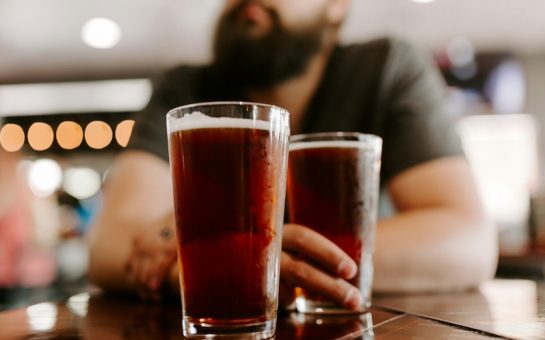Ultra-processed foods are the latest food fad to have been brought into the spotlight, and are set to be the next big thing in health and nutrition.
Whether it’s cutting out sugar, intermittent fasting or following a Mediterranean diet, people are always looking for ways to cut out the latest bad guy, and improve their health.
According to a recent YouGov and Food Standards Agency (FSA) survey, more than half of the British public are concerned by the ingredients of their food, additives and over-processing in every age category.
The survey showed people tend to worry more about what’s in their food as they get older, peaking between age 55 and 74.
As you can see from the graph below, 57% of 16-24 year old respondents were concerned by additives in their food compared to 80% of 55-74 years.
Now you may be thinking, what are ultra-processed foods? In truth, there is not actually a recognised definition of them.
Most of the food we eat is processed in some way – just cooking something is a process.
Cheese is processed, but the difference is it’s not over-processing.
The easiest way to spot food which has been ultra-processed is by having a look at the ingredients and if there is a long list of things you wouldn’t typically find in your kitchen, then the chances are it is ultra-processed.
Jo Travers – the London Nutritionist – and author of The Low-Fad Diet & Bone-Strength Plan explained: “If you take mayonnaise for example: regular mayo has a couple of ingredients. It has eggs, oil and vinegar.
“If you make a lighter version by taking out the fat, you have to add in extra ingredients to get the same texture, taste and look.”
These extra ingredients tend to be gums and stabilisers, and while it was originally thought that they were “neutral”, it’s now understood that they are having an effect on the way our gut produces post-biotics – which are the useful substances created by good bacteria in our gut when it breaks down food.
Furthermore, ultra-processed foods are usually soft and easy to digest, which means your body doesn’t have to work to digest it and to absorb the nutrients.
However, this also means you end up absorbing more of the calories and the nutrients, although they are not always the right ones. They are also low in fibre, which is very important for overall general health.
The growing interest in ultra-processed foods and their potential effects come at a time when more and more people are taking an interest in their gut health, and ways in which it can be improved.
Travers said: “Gut health used to be something that nobody wanted to talk about.
“Now, I’ll see someone in the playground when I’m dropping my kid off, and they’ll say God, I have really bad diarrhoea at the moment, I don’t know what it is that’s causing it.
“Five years ago, people wouldn’t talk about their diarrhoea without me coaxing it out of them. Now people just come up to me in the playground to talk about their gut health. It’s acceptable now, and it’s the new way we can start to take care of ourselves.”
Interestingly, people were generally more concerned by ultra-processed food, than they were by additives.
At the same time, there was also a marked distinction between the number of 16-24 year olds concerned by the over-processing of their food, compared to the number of people in their 60s and 70s.
Travers explained that as people get older they have more time to think about what they’re eating, and more control over it too. They also tend to have more money.
Becoming more risk averse also plays into it, as you start to know people who have diabetes or heart disease.
However, she said: “It is very difficult to avoid ultra-processed foods, and our whole food system is in need of a massive overhaul – it’s a lot cheaper to buy ultra-processed food.
“It’s all well and good for someone who has the skills and the money to pay the gas, to cook their own food in an attempt to cut them out, but a large section of society would find it very hard.”
If you are interested in reducing the amount of ultra-processed food you’re eating, Travers suggests taking your own lunch to work.
She explained that when you buy lunch out, it can be very difficult to avoid them, so taking leftovers from the night before for example, is a great way to do it.
She also suggests snacking on plenty of fruit and nuts, which are high in fibre, good fats and they’re really filling.
Travers said: “If you can pledge to cook your own food even once or twice a week, it really does make a huge difference to health.
“When you start cooking your own food, rather than ordering takeaway or eating in your work canteen, you feel better and you feel more in control”.
Featured image by Jimmy Dean on Unsplash





